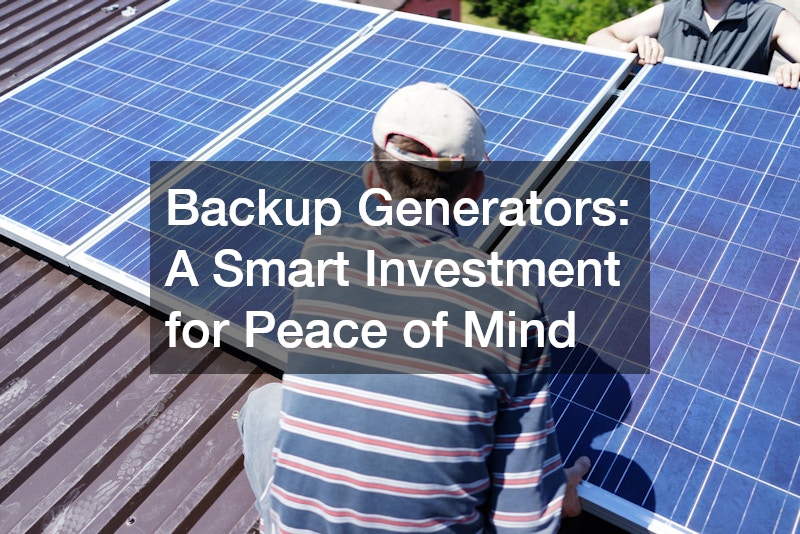
In an increasingly unpredictable world, having a backup generator can be a game-changer for homeowners and businesses alike. Whether it's a sudden storm, a heatwave, or any other weather-related event, power outages disrupt our daily lives and can cause significant losses. A backup generator serves as a reliable solution to ensure that your home remains operational and your family stays safe during such emergencies. Moreover, the increasing frequency of natural disasters has made backup generators more than just an option; they have become a necessity. Investing in a backup generator not only offers convenience but also provides you with peace of mind, knowing that you are prepared for any situation.
Video Source
Backup generators are devices that provide temporary electricity when the main power supply is interrupted. They detect outages automatically and can start supplying power within seconds, ensuring minimal disruption to your daily routine. This is especially vital during extreme weather conditions when prolonged power outages can last for days. Most backup generators run on either diesel, natural gas, or propane, giving homeowners a range of options depending on availability and preference. With advancements in technology, modern generators also come equipped with features like remote monitoring and control through mobile apps, making their operation even more convenient.
The size and capacity of a backup generator can vary significantly, depending on your needs. Small portable generators can power essential appliances such as refrigerators and lights, while larger standby generators can back up an entire home or business operation. Choosing the right generator requires careful consideration of your power requirements, which includes identifying the wattage of essential appliances. It's also important to think about the generator's fuel efficiency, run time, and maintenance needs. With proper planning, you can select a generator that fits your lifestyle and budget while ensuring sufficient power during outages.
One of the primary advantages of having a backup generator is peace of mind during severe weather events. Knowing that you have an immediate backup source of power can alleviate stress and keep your family safe. In the event of an outage, you can maintain critical systems such as medical equipment, refrigeration, and heating or cooling systems that are essential for your family’s comfort and safety. This can be especially important for individuals with health concerns or young children who require stable environments. Thus, a backup generator becomes more than a luxury; it is an integral part of a family’s contingency plan.
Another critical benefit of backup generators is their role in a modern smart home. As more devices become interconnected, the need for a constant power supply becomes paramount. A backup generator ensures that all smart home devices, such as security systems, smart thermostats, and home assistants, continue working during outages. This not only safeguards your property but also allows you to keep communication lines open during emergencies. As the world becomes increasingly reliant on technology, the importance of a backup power source cannot be overstated.
When it comes to choosing a backup generator, the first step is to assess your power needs. Start by making a list of essential appliances and systems that must remain operational during an outage. Calculating the total wattage required will guide you in selecting a generator with adequate capacity. Many manufacturers provide guidelines to help determine the appropriate size based on your needs. Investing time in this initial assessment can save you from purchasing an underpowered unit that fails to meet your requirements.
Next, consider the type of generator that best suits your lifestyle. Portable generators offer flexibility and can be moved easily, but they often require manual setup and fueling. On the other hand, standby generators are installed permanently and automatically kick in during power outages, offering a more seamless solution. Your choice will also depend on availability and type of fuel sources in your area; for example, natural gas is often the most convenient option for stationary generators. Understanding the pros and cons of each type will help ensure you select a generator that aligns with your expectations and needs.
Lastly, installation and maintenance aspects should not be overlooked. Professional installation is advisable for larger backup generators to ensure they comply with local codes and regulations. Regular maintenance is also crucial for optimal performance; this includes routine checks and servicing to prolong the unit’s lifespan. Many manufacturers offer warranties and service contracts, providing additional reassurance and support post-purchase. By taking these factors into consideration, you can make an informed decision that enhances your home’s emergency preparedness.
